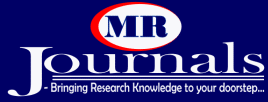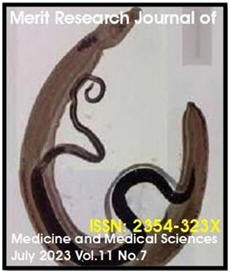
|
|
|
|
|
|
/ / MRJMMS Home / / About MRJMMS / / Submit Manuscripts / / Call For Articles / / Editorial Board / / Archive / / Author's Guide / /
|
Other viewing option
• Full text •Reprint (PDF) (131 KB)
Ibrahim
AM
|
Original Research Article Genetic Characterization of Schistosoma haematobium population in central Sudan |
|||
|
Abdelbasit Mohammed Ibrahim1*, Imran Fadl Osman Fadl2, and Mohammed Mubarak Elbasheir1 |
||||
|
1Department of
Parasitology and Medical Entomology, Alzaeim Alazhari
University, Khartoum State, Sudan |
||||
|
Abstract |
||||
|
Schistosoma
haematobium is neglected and highly endemic parasitic
infection in central Sudan affecting those who come in contact
with the contaminated water of irrigating canals in the
agricultural schemes and water pools of the seasonal rains.
S. haematobium is the causative agent of the urinary
schistosomiasis and the pathology and morbidity related to
it. This study was conducted to characterize the population of
S. haematobium in central Sudan by using pooled
Schistosoma eggs and previously published microsatellite
markers. 16 urine samples were selected from schoolchildren
confirmed infected with S. haematobium by microscopic
examination from Sinnar and Khartoum states. Samples were
centrifuged and the sedimented eggs were pooled and preserved in
Eppendorf tubes filled with 70 % alcohol and treated as one
sample for the extraction of Schistosoma DNA. Six
previously publish microsatellite markers were used for the
population characterization. The study revealed a high genetic
diversity level of S. haematobium population in the study
area. However, the population was not exposed to any genetic
force. All loci were checked for deviation from Hardy Weinberg
equilibrium that was found to be ranging from 0.045 to 0.029.
The study concluded that S. haematobium in the study area
was in a high rate of genetic diversity however, it was not
under any genetic force. |
Merit Research Journals© 2023 || Advertisement | Privacy policy.
